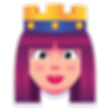The Success Stories: Brands That Have Leveraged Branded Games
- nk7259
- Jan 16, 2023
- 3 min read
Updated: Jan 17, 2023

Branded games have become an increasingly popular marketing tool for companies looking to engage with their audience in a fun and interactive way. These games often incorporate a brand's products or services into the gameplay, providing an immersive brand experience for the player. In this article, we will take a look at some success stories and best practices of well-known brands that have leveraged branded games for their marketing efforts.
One of the most successful branded mini games in recent years was "Coke Zero's 'The Real Game'" which was launched in 2006. The game, which was a massively multiplayer online role-playing game (MMORPG), allowed players to create avatars and play as characters in a virtual world. The game was set in a college campus and players could interact with each other, complete tasks, and earn points. The game was a huge success, with over 2 million registered players and a retention rate of over 50%.

Another successful branded games example was "Who Wants to be a Millionaire?" created by the Walt Disney Company. The game, which was based on a popular TV show of the same name, allowed players to win real money by answering trivia questions correctly. The game was a huge success, with over 15 million downloads and a retention rate of over 80%.

Another notable branded mini games example is "The Sims" created by Electronic Arts, which used the game for its marketing efforts, by allowing players to create a virtual life and decorate their virtual homes with real-world products. This not only increased brand awareness but also drove sales of their products.
One of the best practices of branded games is to ensure that the game is relevant to the brand and its products or services. This can be done by incorporating the brand's products or services into the gameplay, or by setting the game in an environment that is relevant to the brand. This makes the game more engaging and increases the chances of the player remembering the brand.
Another best practice in terms of branded games development is to ensure that the game is easy to play and has a high retention rate. This can be achieved by making the game simple to understand and by providing players with regular updates and new content to keep them engaged.
In conclusion, branded games have proven to be an effective marketing tool for companies looking to engage with their audience in a fun and interactive way. By incorporating relevant brands into the gameplay and ensuring that the game is easy to play and has a high retention rate, companies can increase brand awareness and drive sales. Some examples of well-known brands that have leveraged branded games for their marketing efforts include Coke Zero's "The Real Game", "Who Wants to be a Millionaire?" and "The Sims".
If you're looking to add an interactive and engaging element to your marketing strategy, a branded game may be the perfect solution. We would love to work with you to develop custom branded games that align with your brand and resonate with your target audience.
HitBerry Games as a mobile app development studio has strong skills and prolonged experience in branded games development. We’ve been in the industry for 12+ years. Our branded mini games development studio brings together high-skilled and dedicated talents in branded marketing games creation. We provide outsourcing tasks to enhance your in-house team as well as full-cycle branded games development services for enterprises and start-ups.
We apply a personalized approach to each project. We will provide you not only with top-notch branded games development services, but also focus on your brand’s marketing strategy. Our main goal is to deliver lucrative and stunning branded games that meet all the client’s expectations and requirements. Please don't hesitate to contact us to discuss your project further.